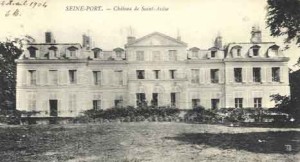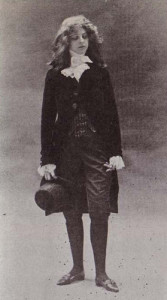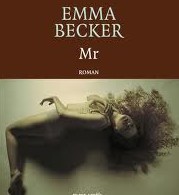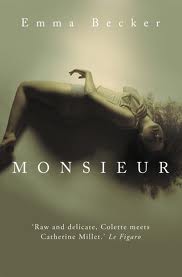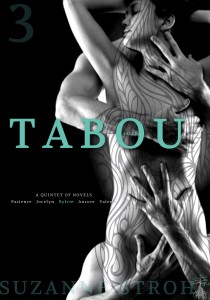Business and pleasure rarely mix, except in the company of Élisabeth de Gramont.
Or so I discovered today, when my translation crossed paths with the research on the rise and fall of wealth I’m doing for Professor John Davis of the Harvard Business School and the Cambridge Institute, where I work.

Join me 119 years ago in the Paris ballroom of the Duke and Duchess de Gramont, Agénor and his second wife, born Marguerite de Rothschild. It’s just this side of midnight on a warm spring night like tonight’s: May above the Seine, with silvery gardens stretching down to the river. I’m dressed as a man. As Francesco Rapazzini, in fact, the handsome young Italian who loaned me this tailcoat. And who apparently has better things to do with his evening than go to another boring bal blanc.
Don’t worry, he said to me when tying my cravat. She will nod from across the room, and that means, ‘Now you may write about me.’
What about Proust? I’ll never hold up, I said, itching under my collar. With Proust (I coached myself once again), reply with an allusion that refers to an irony over a double entendre.
Francesco ran his finger under the collar, saying only, We haven’t met him yet. This is 1894.
I have no Italian, I whined.
So much the better, he murmured, flicking lint and turning me, pleased with his work. Men don’t need language anyway. Keep your mouth shut. He stood back. You’ll do. Prettiest girl at the ball. All the boys will think so.
Don’t you think we’re messing a bit with history here? What if the sight of me sets her down her merry way too soon? It’s fifteen years yet before she meets the lusty gaze of Natalie Barney.
Just don’t look her in the eye, then. He handed me a pair of sunglasses with my gloves and pushed me into the moving carriage.
And now here she is.
 Dressed in the loveliest pink ball gown money can buy, eighteen year-old Élisabeth is not very keen on finding a husband. She’d much rather be having a left-leaning political discussion with her war-hero-turned-pacifist uncle Horace de Choiseul-Praslin. She regards the ubiquitous, bachelor museum specimens swirling around her with disdain. Where is that arty biographer person she just waltzed with? Granted: a mute; even so… She’s intrigued. But it is not permitted to dance twice with the same man. How does anybody find out anything at a May Ball?
Dressed in the loveliest pink ball gown money can buy, eighteen year-old Élisabeth is not very keen on finding a husband. She’d much rather be having a left-leaning political discussion with her war-hero-turned-pacifist uncle Horace de Choiseul-Praslin. She regards the ubiquitous, bachelor museum specimens swirling around her with disdain. Where is that arty biographer person she just waltzed with? Granted: a mute; even so… She’s intrigued. But it is not permitted to dance twice with the same man. How does anybody find out anything at a May Ball?
Were she the sulking type, Lily would sulk. And I would catch her at it from across the room and make her laugh. We’d slip outside and go for a walk. That’s if I wasn’t “Francesco.” And if her stepmother Marguerite, guarding Lily like a prize, wasn’t trying so hard to “make tonight a success.” Lily does her duty, remains seated, inclines her head and forces a docile expression. When she finds me lurking against the wall, she nods slightly.
Now you may write about me.
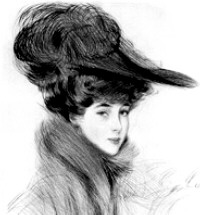
There; across the room; so expensively decked out and dressed in a brand new creation by Worth.
Lily removes her lorgnette; she compensates for myopia with superb intuition and even better hearing. She tunes in on the girl’s bizarre accent. Is she American?
Can she be anything but? I tease silently.
They’re an invading force.
Never look the gift force in the mouth.
Lily looks down just in time to avoid bursting into laughter, since she does not blush. Well, let her have her four marriage proposals. Who is that awful woman? The girl’s mother?
“Mrs. Willie Vanderbilt,” whispers Marguerite. “And that’s Consuelo.”
Stop staring! Élizabeth shoots a glance at me.
You stare.
She’s not as pretty as the dressmaker made her out to be.
And I wasn’t staring. I was gawking. Her grandfather died the richest man in the world.
Well please never go to those lengths to please me, Monsieur.
Certainly not. Her mother will piss away sixty-five million before she’s finished.

Sixty-five million! That’s more than my richest cousin is worth. Or so they tell me, anyway. Elisabeth shoots a glance, first at her stepmother, and then at the American heiress. And it’s at that moment that she gets a new idea about how to please Marguerite. I press for details, but she dismisses me. Later, Monsieur, she says, trying to hide the ironic twinkle in her eyes. I am very bored of writing now.
I wonder. What does Élisabeth really think of the tall, gawky American her age whose mother, Alva Vanderbilt, will bill this as Consuelo’s “social début”? That’s before marrying her off and being the first one in their set to divorce a Vanderbilt. The pioneer strain, indeed.
The other side of midnight, I made my report. And as Francesco would write, a hundred years later:
Many years afterwards, looking back on these parties, Élisabeth de Gramont would describe them in acidic tones. The rooms became “foul-smelling furnaces,” the men pinned to the scene like ornithological specimens, the girls being “herded like sheep.”
Élisabeth never really trusted girls her own age with nothing on their minds but landing a husband. She was already beginning to wonder, at eighteen, whether a husband could be anything but a jailer. More or less cruel, perhaps, but a jailer nonetheless. It was unthinkable that the happiness of one being could depend solely on the actions of somebody else. The knowledge that these lovely girls would spend their whole lives brooding, staying up nights waiting for their unfaithful husbands to return home, seemed like a blot on the whole female sex.
© 2004 by Francesco Rapazzini, Élisabeth de Gramont
Trans. © 2013 by Suzanne Stroh
Later that June, as I learned from Fortune’s Children: The Fall of the House of Vanderbilt by Arthur T. Vanderbilt II, “Alva informed her daughter that five men had asked her for Consuelo’s hand, all of whom Alva had refused ‘since she considered none of them sufficiently exalted.’”
“Thank God,” Élisabeth wrote to me. “I was bracing myself but I was prepared to do my duty, even if it meant a lesbian marriage.”
“Oh, you needn’t go to those lengths to please me, Mademoiselle,” was my reply.
